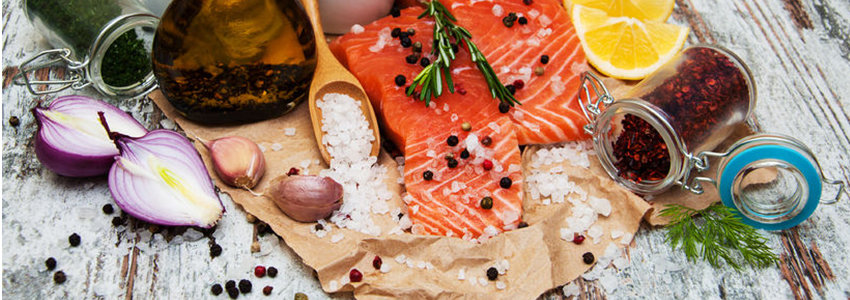Frailty, which is a symptom of osteoporosis, is the leading cause of death, according to Dr. Oz. It is a bigger problem than cancer and heart disease, because 25% of people who fracture a hip will die within a year because of it.
A fracture can render you bedridden during the golden years, when staying active is so crucial. It is often the onset of a downward spiral that is so hard to physically rebound from, which explains this shocking statistic.
However, many doctors continue to recommend typical rock sourced calciums with only added vitamin D as an antidote to thinning bones, which is so commonplace for women past age 40.
Calcium, sourced from limestone and marble, was introduced to help treat osteopenia and osteoporosis more than 60 years ago -with the only real innovation since being the addition of vitamin D. Due to this medical stagnation, sufferers of osteoporosis have had to accept that the best these rock calciums can do is only slow their bone loss.
However, recent study results have shown that adding antioxidant-rich nutrients, found in fruits and veggies, to calcium and vitamin D, can actually help strengthen bones.
You Might Not, But Your Bones Love Veggies
A University of Toronto tissue culture study discovered that taking a varied, highly concentrated nutritional supplement (providing polyphenols from fruits and vegetables), was several more times effective at promoting osteoblast growth than calcium supplements alone.
Osteoblasts are mononucleate cells that are responsible for bone formation and are encouraged by vitamins D and K, because they bind proteins to calcium and deposit them into the bone.
There are cells called osteoclasts that are basically the opposite of osteoblasts, in that they tear down bones. This back and forth is as nature intended and is not a problem- until middle age and beyond when osteoclasts start outdoing osteoblasts, and bone loss of around 1% a year begins- or if you are low on key minerals.
In the UofT study, minerals, water soluble vitamins, calcium and antioxidants were extracted from polyphenols, which are the compounds in fruits and vegetables that give them color. The aim was to look at the effect they had on osteoblasts in comparison to calcium by itself.
The results were that calcium increased bone cell growth by 6 times, but the minerals, water soluble vitamins, calcium and antioxidants extracted from polyphenols increased osteoblasts by 20 TIMES!
Oxidative stress has also been shown to precipitate osteoporosis but can be kept in check with anti-oxidants like vitamin C, lycopene, vitamin D and K, the B vitamins, magnesium, selenium, zinc, copper and manganese. All of these nutrients are important and have a profoundly different effect on bone health than taking a single element rock derived calcium, and are found in many vegetables.
Lycopene, found mostly in tomato juice and watermelon, has been known to provide such anti-oxidant health benefits that the same UofT researchers wanted to see its effect on bone health.
Participants drank tomato juice with added lycopene for 4 months. The results were they increased their antioxidant status and decreased their bone turnover and oxidative stress markers.
The Supermarket Will Make -or Break- Your Bones
Your diet is so pivotal because it will direct your bone density either up or down.
Soft drinks, because of the excessive sugar, along with excessive meat eating, alcohol consumption and processed refined foods, are all very taxing on your bones, as they create an acidic environment in your body. When that happens, your body reacts by pulling calcium away from your bones (where it should be) into the bloodstream, where it is quite effective in absorbing and ‘mopping up’ the acidity your diet has created.
To avoid leeching calcium from your bones, a diet high in fresh fruits and vegetables, which are considered alkaline (the opposite of acidic), will provide the correct pH balance you need to keep the calcium in your bones, and as strong as possible.
Weight Resistance is NOT Futile
But improving your bone health involves one other important component: the bones must feel that they’re being stressed in order to build.
Weight-bearing exercises let the bones know their services are needed, so they react to this pressure by strengthening themselves, to prepare for future burden.
This incredible adaptation to stress and stimulation is yet another marvel of the human body, and is neatly summed up with the perennial expression ‘use it or lose it’.
The Tipping Point
When we were young we were told to eat our veggies and go play outside. But we didn’t know or care why.
With time however, we start to see the reason behind the things our parents demanded. And if there still remains any doubt on what to eat, scientific research has eliminated it with compelling, conclusive data.
I bet you can hear your mom saying ‘Told you so!’
[Bone Health Editor: AlgaeCal is MORE than just old-school calcium + D. The “PLUS” in AlgaeCal Plus stands for all the other supporting bone builders inside – Vitamin C, D3, K2, Magnesium, Boron & other trace minerals all necessary to strengthen your bones.]
Healthy Wisdom
“Don’t eat anything your great-great grandmother wouldn’t recognize as food. There are a great many food-like items in the supermarket your ancestors wouldn’t recognize as food.. stay away from these”
~Michael Pollan





Article Comments